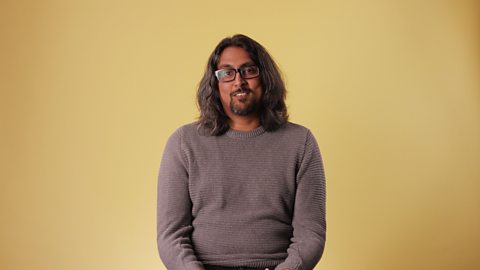Derek Owusu:
It's painful to read back something that you've written, especially when it's the first draft,but it's necessary, you need to do it. That's where all the magic happens.
Hello, I'm Derek Owusu,and I'm a writer. I wanted to be a rapper,but I wasn't very good.I kept writing sentencesthat were too long for a bar.So I started turning my raps into poemsinstead.Didn't take it very seriously,but when I went to universityand I discovered D.H. Lawrencethat's when I realised thatlanguage meanta lot more to me than I thought it did.
And it wasn't until I read a novelby Ralph Ellison called Invisible Manthat I realised that I could write a novelbecause in his book,I could see the seams.
I could seeexactly how he'd put the novel together,and it made me realise that I coulddo that too if I wanted to.I mainlyget my inspiration from everyday moments,from just mundane moments of somebodyjust walking down the street,going to the shop,getting on the bus, getting off the train.
Music works for me as well.I always use music to get myselfinto a particular kind of mind stateso I can capturea tone of a particular chapterthat I'm writing or something like that.I get massive amounts of inspirationfrom great writers as well.
A lot of the timeI'll pick up an incredible novel,I'll read a couple of pages and suddenlyI just want to start writing myselfbecause what I've read is so amazing,and I just want to be able to do what itis that the author is doing.
And now for my stimuluswhich is The Great Gatsbyby F. Scott Fitzgerald,which is actually my favourite novelof all time.
In my younger and more vulnerable years,my father gave me some advicethat I've been turning over in my mindever since.'Whenever you feel like criticizing anyone',he told me.'Just remember thatall the people in this worldhaven't had the advantagesthat you've had.'Immediately you know that Nick Carraway is notsomeone who's going to pass judgment on any person that he's writing about.It really makes you want to understand whoNick is, what life has he led?Who are the people that he'sgoing to be interacting with?
What this makes me reallywant to write about are situationswhere a person is temptedto be judgmental.Then they have an epiphany, they havea moment where they realise that,no, I shouldn't be doing thisbecause I don't actually know this person.
I don't know the life that they've lived,and I will never be ableto get inside their head.Therefore, judging them is a completelypointless endeavour.One thing thatreally helps me when I'm writingis to write in my own voice.This isn't easy.I was told to write in my own voiceby a friend.She said to me one day, 'You know,I still read back the messagesthat you sent me about your life.'And I just said, why?And she said, 'Because they're written so well.'I said to her, 'But I was just talking to you.'And she said, 'Well,that's how you should write then.'
You should just write in your own voiceinstead of trying to write,I guess, in a pretentious way.Another thing that I would say as well,when writing is, don'tthink about the reader.If you think about your audience,what tends to happenis that you will writewhat you think they want to hearand usually what you think they want,they don't want to hear.
Write for yourself. That's probablythe best piece of advice you can get.So you're going to come acrossa lot of rules when it comes to writing.You don't have to follow these rulesdown to a tee. But,you need to understand the rulesbefore you even attempt to break them.
So once you've written what you wantto write, it's important that you redraft.Me personally, I had toredraft my book about 25 times.You can polish everythingand make sure it runsas smoothly as possible to the point wherewhen you read somethingyou've written back,you don't wince anymore,you don't feel uncomfortable.And speaking of not wincing anymore,I actually think I'm ready to read.What I've written now.
I spot her on the train.I look up and squintas she rolls her suitcase over my toes.Where was auntie behind those glazedmarbles?70, I think with dark ringsaround her eyesand warts pepperingthe skin beneath.Everlasting weeping.I say to myself. She sits downwith an open mouth sigh opposite me.But one seat to the left, she's tired.But instead of leaning back, she's restingher forearms on the top of her case.Looking around curiously but missing me,her eyes slipping over my dark skin.
Always read the opposite ofwhat it is that you want to write.If you aspire to be a novelistmake sure you read poetry.If you want to be a poet,make sure you read as many novelsas you possibly can.I would also say don't force it.If you're having a problem,just get up and watch a movie,do something else, then come back to it.
Also, I would say,try and find your voice beforeyou try and give voice to other charactersbecause the authenticity that you have,you then breathe into your characters.If you're imaginingsomebody else in your headas you're writing, and then you tryand write a character, you've literally createdso many more barriers than you needto. Feel comfortable in yourselfand who you are, what your voicesounds like when you're speaking,and then give life to your characters.
Video summary
Derek Owusu, who works across a number of genres but is perhaps best known for his fiction writing, talks about the importance of finding your voice with your creative writing.
He talks about wanting to be a rapper and how he began turning his raps into poems. But Derek only began taking his writing seriously when he went to university and discovered D.H. Lawrence, realising that language meant a lot more to him than had thought.
This short film is from the BBC Teach series Inside the Writer's Mind, and is supported by a free classroom resource from First Story.
Teacher Notes
Before viewing
Discuss how stories are made from everyday moments. Everyone we see in our daily lives has their own stories.What might inspire someone to write?
After viewing
Derek speaks about judgement. You could provide your class with a range of images of people we might judge – perhaps a wealthy looking person, a tattooed person, somebody with an 'alternative' appearance, etc. Use these as a stimulus to create a background for them. What was their childhood like? Who are the important people in their lives?
Students could discuss what good writing is and create a list of what inspires them to write.
Encourage experimentation with ‘What if…’ questions which disrupt their ordinary routine.
Discuss when it is appropriate to write in their own voice and compare with how they might write in an examination situation.
This short film will be relevant for teaching English language at KS3 and KS4 in England, Wales and Northern Ireland and National 4 and 5 in Scotland.
Topics covered include character and plot development in narrative writing; making links to word meaning, effective punctuation and narrative structure; understanding characterisation, narrative planning, story structure, editing, proofreading and redrafting.
Hannah Khalil – Playwright. video
Hannah Khalil, a Palestinian-Irish playwright, talks about the creative process she goes through when writing for the stage.
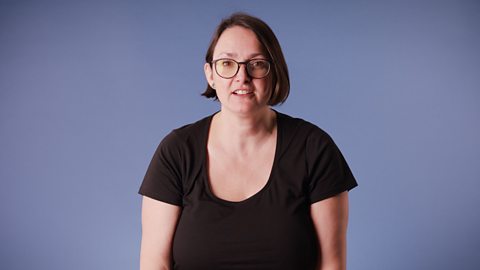
Javid Rezai – Screenwriter. video
Javid Rezai, a British-Iranian-Italian screenwriter, offers insight into his creative process and how a collaborative writer's room works.
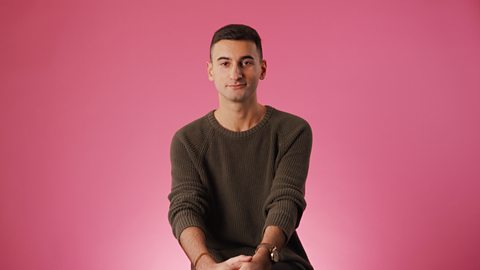
Vicky Foster – Poet. video
Vicky Foster, who works across a number of genres but is perhaps best known for her poetry, talks through her creative process when writing and editing a poem.
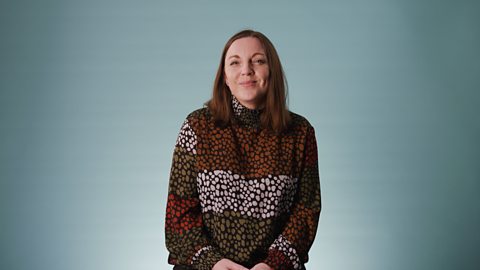
Tomfoolery – Performance Poet. video
Perfomance poet Tomfoolery reveals how he first got into poetry and talks through his creative process.
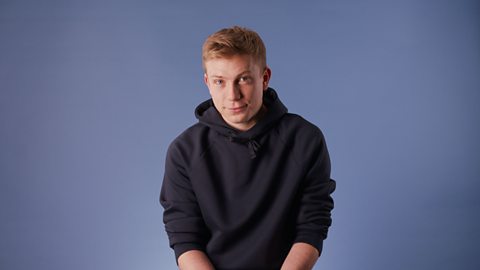
Maisie Chan – Children’s Author. video
Children's author Maisie Chan talks about how a lack of British East Asian and Southeast Asian representation in books spurred her on to become a writer, and gives insight into her creative process.
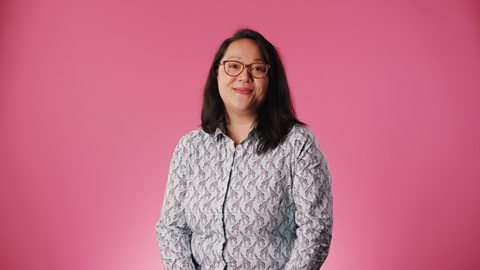
Priya Hall – Comedian. video
Stand-up comedian and comedy writer Priya Hall talks through her creative process and gives advice on comedy writing and performance.
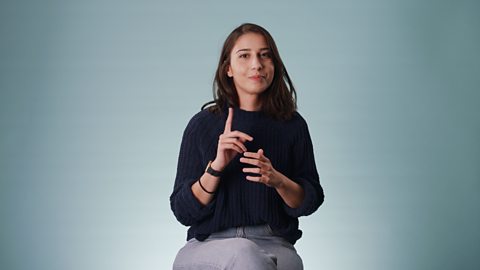
Ram V – Graphic Novelist. video
Graphic novelist Ram V talks about how his background influences his writing, and the collaborative and creative process of creating a graphic novel.
